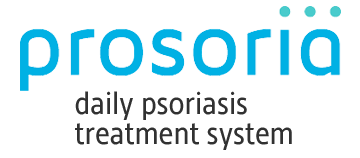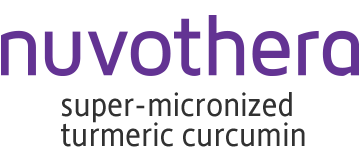
What is Inflammation?
Inflammation is the body’s natural way of protecting itself and is part of the body’s immune response. It involves many chemical reactions that help fight off infections, increase blood flow to wounds or tissues that need healing, and generate pain as a signal that something is wrong in the body.
It’s important to understand the difference between two types of inflammation: acute and chronic inflammation. Acute inflammation is the body’s immediate response to injury, physical trauma, infections, and disease. Acute inflammation helps facilitate the healing and recovery process. Like with any process in the body, it is possible to have too much of a good thing. When inflammation becomes self-perpetuating it can result in chronic inflammation. Chronic inflammation can affect any and all parts of the body and may be associated with a disease process.
Inflammation is often compared to fire. With just the right amount of fire, we can keep warm, stay healthy and are protected. But if the fire gets out of control and continues to burn on-going it can be destructive. It is now understood that low-grade chronic inflammation can keep the body’s tissues from properly repairing and also begin to destroy healthy cells in arteries, organs, joints and other parts of the body, contributing to many chronic health problems and can itself become a disease.
Chronic Inflammation Linked to Many Diseases
Inflammation has been a studied extensively and there are a number of medical conditions that are linked to too much inflammation. One of the major health conditions is arthritis and joint diseases which affect approximately 350 million people worldwide and nearly 43 million people in the United States or almost 20% of the population. The number is in the US is expected to exceed 60 million by 2020.
Psoriasis is a debilitating chronic inflammatory autoimmune disease that results in excessive growth of skin cells. Psoriasis affects over 125 million people worldwide, according to the World Health Organization and over 8 million people in the United States. Approximately 30% of people with psoriasis eventually develop psoriatic arthritis which is very painful
Some of the other diseases linked to too much inflammation include diseases where the immune system attacks the body such as in Rheumatoid arthritis and Lupus. Others include:
The World Health Organization (WHO) ranks chronic disease as the greatest threat to human health. The prevalence of diseases associated with chronic inflammation is anticipated to increase persistently for the next 30 years. In recent estimates by the Rand Corporation in 2014, nearly 60% of Americans had at least one chronic condition, 42% had more than one and 12% of adults had 5 or more chronic conditions. Worldwide, 3 of 5 people die due to chronic inflammatory diseases like stroke, chronic respiratory diseases, heart disorders, cancer, obesity, and diabetes.
Risk Factors Associated with Chronic Inflammation
The key risk factors associated with chronic inflammation include:
Age: Increasing age is corelated with elevated levels of inflammatory molecules in the body.
Obesity: Many studies report that body mass index is associated with pro- inflammatory molecules secreted in the body.
Diet: Diet rich in saturated fat, trans fats, or refined sugars is associated with increase in pro-inflammatory molecules.
Smoking: Cigarette smoking is associated with lowering the production of anti-inflammatory molecules and inducing inflammation.
Stress: Both physical and emotional stress is associated with inflammatory cytokine release.
Sleep Disorders: Stress can also cause sleep disorders. Individuals with irregular sleep are more likely to have chronic inflammation.
Conventional Treatments for Chronic Inflammation
Prescription Treatments:
Since chronic inflammation affects specific areas of the body and may be associated with specific diseases, treatment approaches vary considerably. For decades, physicians relied on steroids to suppress immune response. While they are an important option, steroids come with serious side effects that can be permanent and risk death.
In the past twenty years since has advanced and there are new classes of therapies that are targeted. Unfortunately, many of these newer therapies are broad immunosuppressive treatments that come with serious side effects from lowering the body’s natural immune response.
Statins are anti-inflammatory treatment used in managing cardiovascular disease.
Non-Prescription Treatments:
Non-steroidal anti-inflammatory over the counter medications are commonly taken to alleviate the pain caused by inflammation. Examples of NSAIDs include ibuprofen, aspirin, and naproxen. Long term use of NSAIDS should be avoid unless advised by a doctor due to sever, life-threatening side effects caused by kidney damage, liver damage, risk of having a stroke or heart attack.
Herbal supplements such as turmeric, which is part of the ginger family has been shown to have potent anti-inflammatory properties.
Nuvothera: Finding A Better Way to Treat Chronic Inflammation
People need effective solutions for managing chronic inflammatory conditions that are effective and safe enough for regular use. Nuvothera CEO Arthur Clapp has many years of experience developing botanically-based alternatives to pharmaceutical treatments. He learned that the curcuminoids in turmeric, used as a natural anti-inflammatory and healing agent for thousands of years, worked as well as some well-established non-prescription OTC products to help support joint health and mobility* and other inflammatory based health conditions. Clapp states. “We searched the globe for ways to control inflammatory based conditions with active treatments that would prevent future flares and do it safely. We knew there was a better way. That’s why we created Nuvothera”
Nuvothera, Inc. a Fort Worth, TX-based biotech company formed by seasoned dermatology and pharmaceutical executives with the mission of developing novel OTC products for chronic, difficult-to-treat diseases such as psoriasis, joint diseases, arthritis and other inflammatory diseases. Nuvothera’s products incorporate natural botanical ingredients and use the latest in scientific knowledge and evidence-based research. Currently, the company has two products in its portfolio. Prosoria™ Daily Psoriasis Treatment System and Nuvothera™ Super-Micronized™ Turmeric Curcumin are available via the company website and on Amazon. Both dermatologists (MDs) and scientists (PhDs) were involved in developing these products, which are scientifically tested and proven. In 2018, Art was named Entrepreneur of the Year by the Fort Worth Business Press and Nuvothera won the Tech FW (Fort Worth) Impact Award for a product that has the potential to impact our world. For more information, visit www.nuvothera.com.
Harnessing the Power of Turmeric
Ayurvedic medicine is the world’s oldest natural healing remedy developed more than 3,000 years ago on the belief that wellness depends on a balance between mind, body, and spirit. Its main goal is to promote good health, not fight disease.
Turmeric is a sought-after spice and Ayurvedic herb referenced in over 6,000 clinical studies. It is widely recognized as a folklore medicine used for its antimicrobial, antioxidant and anti-inflammatory properties. Turmeric is a natural antibiotic that supports healthy cultivation of friendly bacteria, and also rids the body of unfriendly toxic bacteria. The medicinal herb is used as an antiseptic, analgesic, anti-inflammatory, antimalarial, and insect repellent. Turmeric helps skin conditions such as psoriasis, pulmonary, and gastrointestinal conditions as well as aches, pains, wounds, sprains, and liver disorders. For skin conditions like psoriasis turmeric can be used topically in a cream or can be used orally to support a broad range of inflammatory health conditions. Nuvothera’s first product, Prosoria Daily Psoriasis Treatment System, contains turmeric and curcumin in its for its powerful antioxidant and anti-inflammatory effects to help support healthy skin. Prosoria is a topical OTC psoriasis treatment system that effectively and safely treats psoriasis symptoms with results that are long lasting.
Turmeric has a broad range of health benefits and it supports a healthy inflammatory response and proper immune system functioning.In the last few years, consumers have increasingly purchased turmeric supplements based on reported benefits including diminished joint pain, improved brain function, lower risk of heart disease and cancer, thwarting Alzheimer’s disease, and even anti-aging effects.
Nuvothera’s Turmeric Curcumin is unlike other turmeric anti-inflammatory supplements because it’s super-micronized to achieve maximum absorption, potency, and bioactivity without harmful chemical enhancers. The phytochemical curcumin gives turmeric it’s golden yellow color and is the compound responsible for many of the therapeutic effects. Nuvothera’s Super-Micronized Turmeric Curcumin maximizes the value of curcumin and uses the entire turmeric root for maximum potency and efficiency.
Anti-Inflammatory Lifestyle Choices to Manage Chronic Inflammation
Research points more and more to Inflammation as an underlying factor in many diseases and chronic conditions. There are many chronic inflammatory disorders with no cure. Chronic inflammatory patients are at greater risk of developing another inflammatory related condition. Inflammation is a key factor in almost all chronic degenerative diseases. Trigger factors need to be controlled and lifestyle choices need to be modified so people can best manage their chronic condition. It is ever clearer that Inflammation needs to be managed for the long term to manage your health as you age.
A simple model to follow is the Anti-Inflammatory Lifestyle. It’s is a modern approach similar to the ancient Ayurvedic medicine that is focused on healing the body, mind, heart and spirit as a whole not just treating inflammation flares with short term therapies that treat symptoms. It’s a long-term approach that takes a commitment. But by making gradual changes people can gain more capacity and confidence to keep making changes which continue to improve their health and overall wellbeing.
Listed below are the key Anti-Inflammatory Lifestyle choices have been identified to be the most effective ways to manage or prevent chronic inflammation:
Increase the uptake of anti-inflammatory foods: Consuming whole grains, natural foods, plenty of brightly colored vegetables and fruits such as avocados, cherries, kale, and fatty fish like salmon is helpful in managing inflammation. It is important to avoid eating simple sugars, refined carbohydrates, high glycemic foods, trans fats and hydrogenated oils. Decrease foods or ingredients that may trigger intolerance in some people such as alcohol or artificial flavors and colors, artificial sweeteners.
Minimize intake of antibiotics and NSAIDS: Use of antibiotics, antacids, and NSAIDs should be avoided as it could harm the microbiome in the gut causing inflammation in the intestinal ways which in terns releases toxins and triggers chronic inflammation.
Exercise regularly to maintain an optimum weight: It is largely known that adipose tissue in obese or overweight individuals induces low-grade systemic inflammation in the body. Regular exercise is helpful not only in controlling weight but also decreasing the risk of cardiovascular diseases and strengthening the heart, muscles and bones.
Sleep longer: Overnight sleep ideally 7 to 8 hours helps simulating human growth hormones in the body to rebuild itself.
Stress less: Chronic psychological stress is linked to greater risk for depression, heart disease and body losing its ability to regulate the inflammatory response and normal defense. Yoga and meditation are helpful in alleviating stress-induced inflammation and its harmful effects on the body.
Don’t smoke: Smoking cigarettes is associated with inducing inflammation in the body.
Summary: For most of us, keeping inflammation in check comes down to common sense basics: eat well, don’ smoke, get moving, get more rest and see your health care practitioners for regular physicals which could help you stop chronic inflammation before it becomes rampant. Making anti-inflammatory lifestyle choices is the best way to help prevent an inflammation “fire” from getting out of control in your body in the first place.

